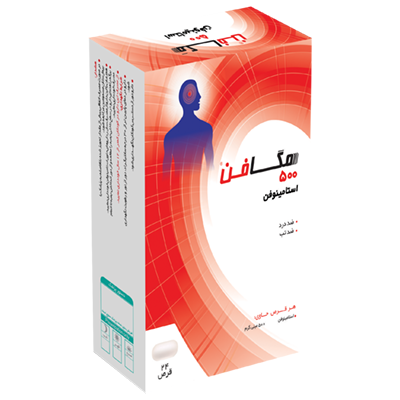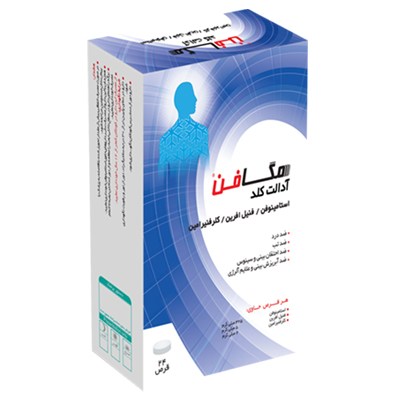Psoriasis is a chronic, inflammatory autoimmune skin disease that can affect the lives of patients. In addition to skin problems, this disease can affect quality of life, mood, and daily activities. Although the origin of this disease is in the body's immune system, lifestyle and especially nutrition can play a decisive role in its management. In this article, we will comprehensively review what to eat to treat psoriasis and what foods should be eliminated from the diet.
Diet for psoriasis; a close connection
Chronic psoriasis flares are caused by abnormal immune responses to skin cells. Foods that are good for psoriasis can help reduce the severity of these flares and speed up the healing process. A balanced diet can not only improve symptoms, but also help with overall health and boost your immune system's resistance to disease-causing agents.
It is also worth noting that each patient may react differently to foods; therefore, it is important to be aware of and pay attention to the body's symptoms after consuming each food. Below, we have discussed in detail the importance of diet for psoriasis:
What to eat to treat psoriasis?
Choosing healthy, anti-inflammatory foods is the cornerstone of psoriasis management. Certain foods help reduce inflammation and improve immune function. It is recommended that patients include the following foods in their daily diet:
- Fatty fish: Fish such as salmon, sardines, mackerel, and tuna are rich in omega-3 fatty acids. These fatty acids play an effective role in reducing inflammation and can reduce the severity of skin lesions. Consumption at least twice a week is recommended.
- Green leafy vegetables: Spinach, kale, beet greens, and other vegetables that are rich in vitamins and antioxidants help boost the immune system and fight free radicals.
- Nuts and seeds: Walnuts, almonds, flax seeds, and chia seeds are rich sources of fiber and beneficial fatty acids. These ingredients help reduce inflammation and improve skin health.
- Antioxidant fruits: Pomegranates, blueberries, strawberries, and blackcurrants contain powerful antioxidant compounds and help fight oxidative damage in skin cells.
- Whole grains: Oats, quinoa, brown rice, and other whole grains are rich in fiber and B vitamins, which are effective in maintaining skin health and regulating metabolism.
- Healthy oils: Using extra virgin olive oil, sesame oil, and avocado oil instead of saturated and trans oils is essential to reduce inflammation.
Breakfast for psoriasis: the start of a healthy day
A breakfast for psoriasis should be a combination of nutritious, light, and anti-inflammatory foods that, in addition to providing energy, do not aggravate the disease. A proper breakfast keeps blood sugar levels balanced and provides enough energy for daily activities. It is recommended to use the following ingredients in breakfast:
- Oatmeal with almond milk, walnut pieces, and fresh fruit like blueberries or strawberries
- Green smoothie made with spinach, avocado, banana, chia seeds, and coconut milk
- Boiled or poached eggs with whole grain bread and some olive oil
- Low-fat natural yogurt with a mixture of nuts and a small amount of natural honey
In addition to having anti-inflammatory properties, these compounds help strengthen the immune system and prevent severe blood sugar fluctuations, and are considered a beneficial breakfast for psoriasis.
The best drink for psoriasis
Beverages play a very important role in maintaining a healthy body and skin. Choosing the best beverages for psoriasis can help reduce inflammation and facilitate the detoxification process. Recommended beverages include:
- Soothing and anti-inflammatory herbal teas such as chamomile, ginger, borage, and green tea
- Plant-based milks such as almond milk, coconut milk, and oat milk, which are lactose and gluten-free
- Water with an emphasis on consuming the right amount for the body per day for complete hydration
- Natural fruit juices without added sugar, such as pomegranate juice or fresh lemon juice
Harmful foods and forbidden foods for psoriasis
One of the most important parts of managing psoriasis is avoiding foods that increase inflammation. These foods that are bad for psoriasis include:
- Processed and prepared foods: Sausages, canned goods, fast foods, and fried foods that are high in trans fats, salt, and additives.
- High-fat dairy: High-fat cow's milk and cheese may cause an inflammatory reaction in some patients.
- Gluten: A protein found in wheat, barley, and some grains, it can aggravate symptoms. If a sensitivity is suspected or diagnosed, eliminating gluten is recommended as a food that is harmful to psoriasis.
- Refined sugars and industrial sweets: Increased sugar consumption leads to systemic inflammation and worsening of lesions.
- High-fat red meats: High consumption of beef, lamb, and fatty meat products increases inflammatory compounds in the body.
- Alcoholic beverages: Alcohol increases inflammation and decreases immune system function.
Coffee and Psoriasis | Painkiller or Stimulant?
The issue of the effect of food and beverages on psoriasis, especially coffee and psoriasis, has become a hot and controversial topic in scientific and health circles. Could coffee be a trigger for this disease? Or, conversely, could drinking coffee be a factor in reducing symptoms and improving the quality of life of patients?
At first glance, coffee is known as an energizing and anti-inflammatory drink, with its caffeine and powerful antioxidants. But do these positive properties have the same effect on the body of people struggling with psoriasis? Or can caffeine inflame inflammation and accelerate the course of the disease? This question has occupied the minds of many patients and experts. Several studies have tried to discover the relationship between coffee and psoriasis; some research reports protective effects and reduces inflammation, while others warn of an increased risk of exacerbation of lesions.
The existence of this contradiction in the research results doubles the sense of curiosity and the need to know the truth. Because the right answer can directly affect the lifestyle and daily choices of people with psoriasis. Imagine being able to significantly lighten the burden of this disease with simple changes in diet and beverages. This is the point that attracts our attention; a deep interest in discovering the truth behind the connection between coffee and psoriasis.
Other ways to control psoriasis: medication and complementary therapies
In addition to a psoriasis diet and lifestyle modifications, drug therapy is an essential part of psoriasis disease control. These treatments are divided into several categories:
- Topical medications: including topical corticosteroids (Megacort ointment), vitamin D analogs, retinoids, and moisturizers used to reduce inflammation and improve skin condition.
- Systemic medications: For more severe cases, oral or injectable medications such as methotrexate, cyclosporine, and biologics are prescribed that have a direct effect on the immune system.
- Phototherapy: Controlled exposure to ultraviolet light is effective in reducing skin inflammation.
- Stress management: Stress is one of the triggers for psoriasis, and stress management techniques such as meditation, yoga, and psychological counseling can be very helpful.
- Considering that Psoriasis in Genital Women and Male genital psoriasis It also occurs, it may cause a decrease in self-confidence, painful sex, and psychological problems. In such situations, it is necessary to accompany a specialized counselor and you should not be ashamed to express your problems; conversation and psychological support can greatly help improve the quality of life.
Conclusion | The right diet for psoriasis
Psoriasis is a chronic disease that requires a combination of medical treatments and lifestyle changes to manage. Following a psoriasis diet that includes foods that are beneficial and foods that are harmful to psoriasis can significantly improve symptoms and quality of life.
Also, paying attention to beverages and choosing the best drinks for psoriasis plays an important role in reducing inflammation. Medical care and medication, along with proper nutrition, are the keys to success in managing this disease.
Finally, for more comprehensive and accurate information about the nature, causes, and treatment of psoriasis, it is essential to refer to specialized sources and consult a specialist physician. To fully understand the disease and choose the best treatment methods and lifestyle, read the specialized article "What is psoriasis?» It will be your golden key.




